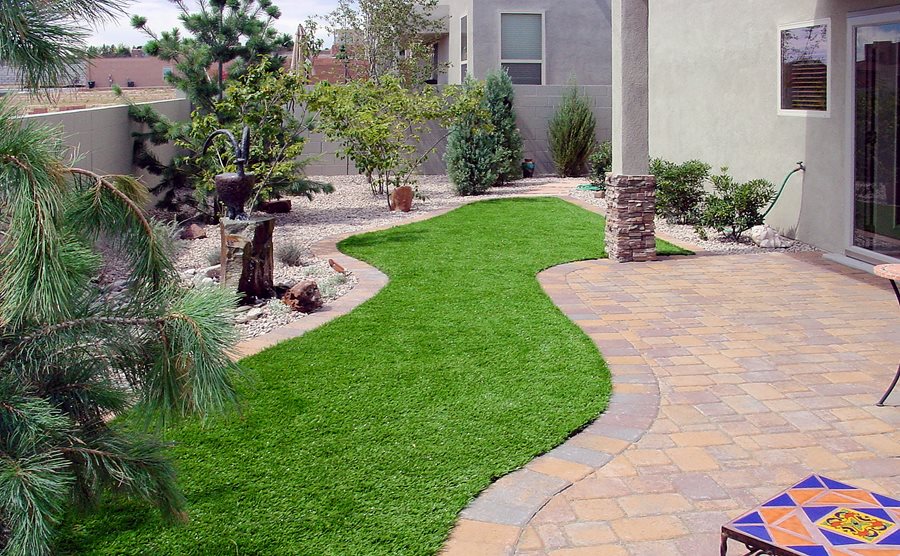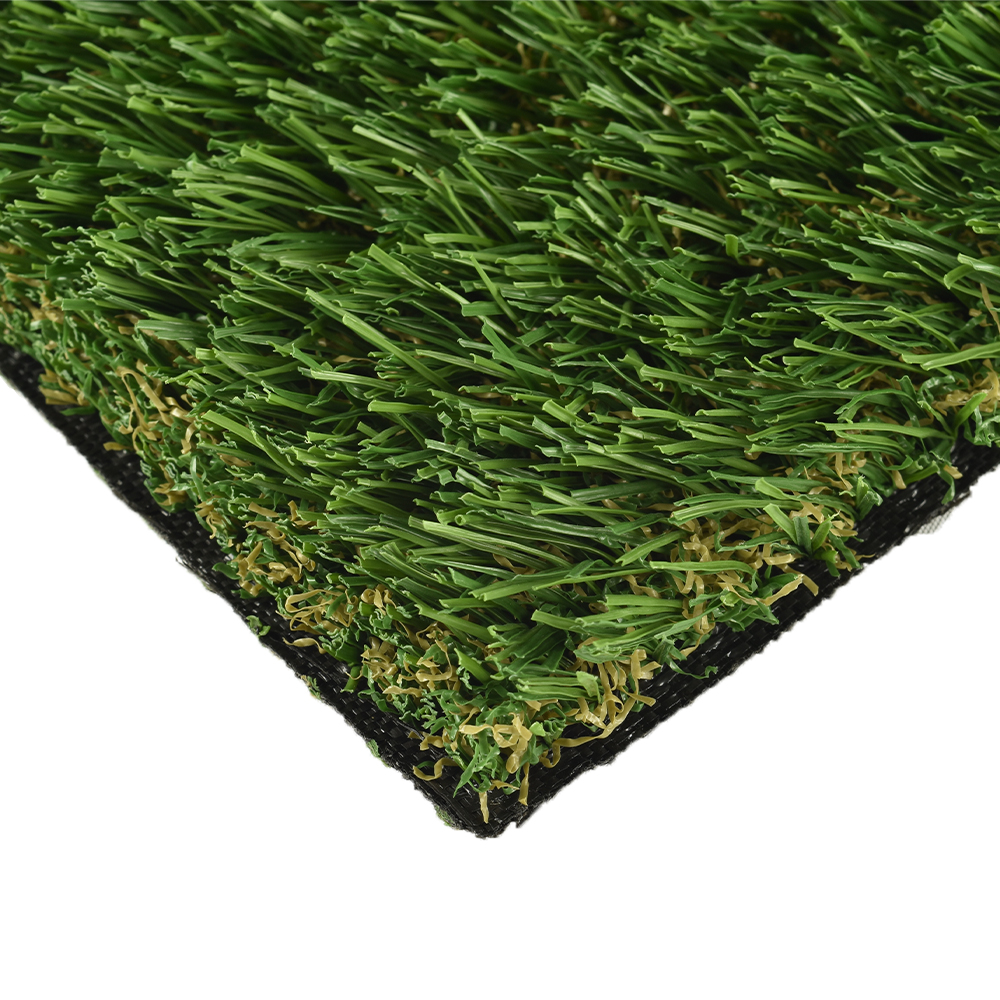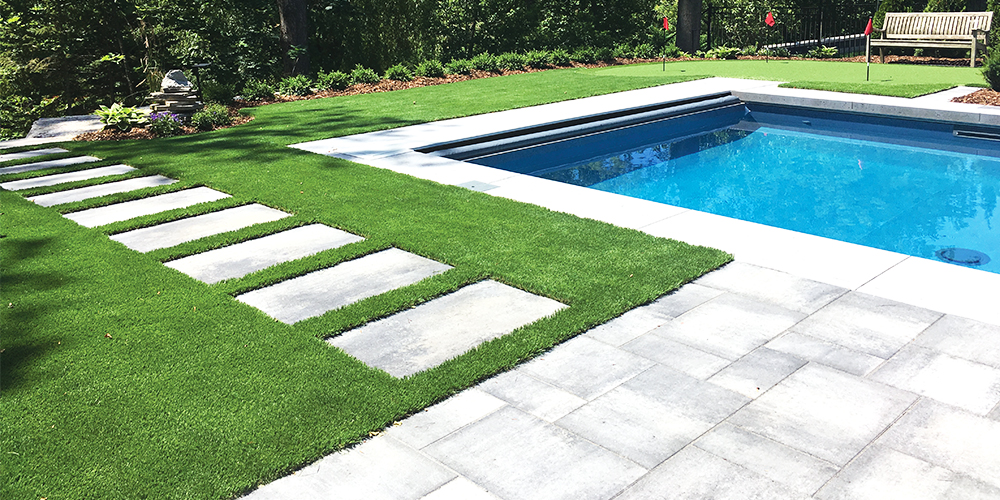Delve Into the Environmental Benefits of Opting for Artificial Lawn Solutions
The fostering of synthetic grass services presents an engaging opportunity to resolve pushing environmental challenges. By substantially minimizing water usage and decreasing the application of harmful chemicals, these choices not just promote lasting landscaping yet additionally secure local ecological communities. Furthermore, the lower carbon impact related to lowered maintenance tasks adds to a more lasting approach to land administration. However, the ramifications of these advantages prolong beyond plain conservation initiatives, raising questions concerning their lasting influence on habitat conservation and overall ecological equilibrium. Discovering these dimensions reveals a complicated interplay worth taking into consideration.
Water Preservation Perks
One of the most significant advantages of fabricated lawn is its capacity to preserve water. In contrast, artificial lawn does not require watering, dramatically lowering the general demand for water sources.
By getting rid of the need for normal watering, synthetic grass adds to sustainable landscape techniques and assists alleviate the environmental effect of excessive water usage. In addition, the conservation of water includes the reduction of runoff, which can cause soil erosion and waterway contamination.
In addition, the setup of synthetic lawn allows homeowners and communities to allocate water resources much more efficiently, concentrating on necessary usages such as alcohol consumption water and farming. The change towards artificial grass not only advertises responsible water usage but additionally aligns with wider environmental objectives focused on preserving all-natural sources.
As communities increasingly prioritize sustainability, the water preservation advantages of synthetic grass provide an engaging instance for its fostering in household and commercial landscape design tasks.
Reduced Chemical Usage
The change to fabricated lawn significantly decreases the reliance on chemical treatments frequently utilized in natural grass upkeep. Traditional turf management usually entails the application of herbicides, pesticides, and fertilizers to advertise growth and control bugs. These chemicals can present dangers to human health, local wild animals, and the setting, adding to soil and water contamination.
In comparison, synthetic lawn gets rid of the requirement for these dangerous substances. By decreasing the release of artificial substances into the ecological community, man-made lawn promotes healthier dirt and water systems.
Additionally, the lack of chemical overflow connected with synthetic lawn installations assists protect local rivers from pollution, supporting marine life and maintaining biodiversity. Arizona artificial turf. As communities progressively focus on sustainable methods, choosing synthetic grass offers a practical solution that lines up with ecological preservation objectives. With this change, homeowner can appreciate rich eco-friendly rooms without endangering ecological wellness, leading the way for a much more lasting future
Lower Carbon Footprint

Moreover, the installment of fabricated turf can lead to significant water preservation. All-natural grass call for substantial amounts of water for irrigation, which not just adds to the carbon impact related to water removal and therapy but likewise stress neighborhood water sources. In comparison, synthetic grass requires minimal maintenance, requiring no watering, consequently significantly lowering water usage and its associated power costs.
Furthermore, the durability of synthetic grass adds to its reduced carbon impact. With a lifespan of up to 15 years or even more, the need for constant substitutes is lessened, causing much less waste and lower energy consumption in manufacturing and taking care of traditional lawn choices. Generally, synthetic grass presents a lasting choice for ecologically conscious landscape design.
Environment Conservation
Habitat preservation is a crucial consideration in the discussion over landscape design options, particularly when contrasting fabricated grass to natural turf. All-natural lawn lawns frequently require extensive upkeep, including using pesticides, herbicides, and plant foods, which can detrimentally impact neighborhood environments. These chemicals can leach right into the soil and rivers, hurting indigenous vegetation and animals and interfering with local environments.
Synthetic turf gets rid of the need for unsafe chemicals, thereby safeguarding close-by wildlife and keeping click resources the honesty of bordering ecological communities. The installation of artificial turf can lead to the conversion of former turf areas into even more biodiverse landscapes, such as pollinator yards or native plant areas, which can sustain neighborhood wild animals.
Eventually, the change to artificial lawn not just preserves water and minimizes upkeep initiatives however likewise fosters a more harmonious connection between human tasks and the natural surroundings, advertising habitat preservation in the process.
Long-Term Sustainability
Lasting sustainability is a crucial consider evaluating the advantages of fabricated grass over conventional grass lawns. Among the most significant advantages of man-made grass is its longevity; it right here can last as much as 15-20 years with minimal upkeep, whereas natural turf requires constant reseeding and substitute. This longevity minimizes the need for constant sources, such as water, fertilizers, and chemicals, which are necessary for maintaining a healthy and balanced turf lawn.
Furthermore, synthetic grass adds to a reduction in carbon exhausts related to grass care tools. Traditional yards frequently require gas-powered lawn mowers, trimmers, and blowers, every one of which add to air pollution. Turf installation phoenix az. On the other hand, synthetic grass eliminates the requirement for such equipment, advertising a cleaner environment
Additionally, the manufacturing of synthetic lawn progressively makes use of recycled materials, improving its sustainability account. As manufacturers adopt environment-friendly techniques, the environmental impact of synthetic grass proceeds to diminish.

Conclusion
The fostering of synthetic grass services offers considerable environmental benefits, consisting of substantial water preservation, decreased dependence on harmful chemicals, and a reduced carbon footprint. Artificial grass help in protecting natural environments by minimizing land disruption and advertising long-term sustainability with the usage of resilient products. Jointly, these elements emphasize the capacity of synthetic grass to add favorably to environmental health and wellness and provide a sensible alternative to standard review landscape design practices in a significantly resource-conscious world.
In comparison, artificial grass does not require watering, significantly lowering the overall demand for water resources. By lessening the launch of synthetic substances right into the ecosystem, synthetic grass advertises much healthier soil and water systems.
Moreover, the installment of fabricated turf can result in substantial water preservation. In comparison, fabricated lawn needs minimal upkeep, calling for no watering, thus significantly lowering water use and its connected power costs.
